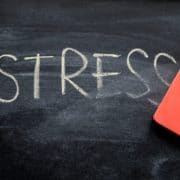Your Brain Needs Water

In order for our brains to function optimally, we need to ensure we stay hydrated. Brain cells need water (amongst other things) to operate or they will quickly lose efficiency when the balance is lost.
Drinking water is not just about quenching thirst. Studies have shown that dehydration can actually cause the brain to shrink, linking to declining memory, difficulty thinking clearly and doing complex tasks (like a crossword).
The good news is, having a glass of water quickly brings the brain back to normal. Other studies have shown that students who drink water before an exam can do up to three times better than those who had none.
Water could also be the answer to those who wake up grumpy. On a typical night’s sleep, there are up to 10 hours without water. We sweat and breathe out moisture and therefore can be dehydrated when we wake, which can affect mood.
If you want to be on top of your game or avoid that afternoon slump, try water to maximise your thinking, focus and mood.
6 signs you could be dehydrated:
- You’re tired
- You’re hungry
- You have a headache
- Your skin is dry
- You feel hot
- You’re grumpy
Our guideline is 30ml of water for every Kg of body weight (eg 30ml x 56kg=1,680ml or rounded to 2 litres water).
We are lucky we live in a part of the world that has access to clean water. It’s something to be grateful for. Consider donating to a charity such as https://thewaterproject.org/give-water to help those struggling without water.





 Most of us think we need to sweat it out at the gym or go for a long run to be active and if we miss those opportunities due to our busy lives, we beat ourselves up. What counts as exercise has been institutionalised to the point that if it’s not a dedicated chunk of time in a dedicated place, it doesn’t count. There are a lot of ‘should’s’ going on – I should exercise, I should go to the gym. It’s these ‘should’s’ that can set us up to fail, over and over again. Sound familiar?
Most of us think we need to sweat it out at the gym or go for a long run to be active and if we miss those opportunities due to our busy lives, we beat ourselves up. What counts as exercise has been institutionalised to the point that if it’s not a dedicated chunk of time in a dedicated place, it doesn’t count. There are a lot of ‘should’s’ going on – I should exercise, I should go to the gym. It’s these ‘should’s’ that can set us up to fail, over and over again. Sound familiar?
